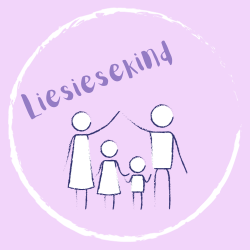The fourth trimester is a term used to describe the first three months of a baby’s life. It is a time of great adjustment for you and your baby, as you get used to a new routine and learn how to care for your newborn. During this period, your baby undergoes many physical and developmental changes. He is still adjusting to life outside your womb and needs a lot of comfort, warmth, and nurturing.
The Fourth Trimester – What To Expect
The term “fourth trimester” is a relatively new concept in the world of parenting and refers to the first three months after a baby is born. During this time, both your baby and you undergo significant physical, emotional, and psychological changes as you adjust to your new roles. The fourth trimester is a crucial period for the development of your baby and the bonding process. It is also a time when your body undergoes significant changes as it transitions from pregnancy to postpartum and heals from childbirth. In today’s post, I will discuss some of the key aspects of the fourth trimester and provide helpful tips on how to navigate this period.
Related: Pregnancy – The Third Trimester

Physical Changes in Your Baby
During the first three months of life, babies undergo several physical changes. They are born with soft, pliable skulls designed to mold and adapt to the birth canal during delivery. However, this also means that their skulls are not fully formed and may have an uneven shape or a soft spot on the top of their head.
Babies also have immature digestive systems, which means they may experience colic, reflux, or other digestive issues. They may also have difficulty sleeping for long stretches and might need to eat frequently throughout the day and night. Newborns are also not yet able to regulate their body temperature, so they need to be kept warm and cozy. You can swaddle or wrap your baby snugly in a blanket to help him feel more secure and comfortable.
Related: 16 Best Tips For Moms With Newborns
Developmental Changes in Your Baby
In addition to physical changes, your baby will undergo many developmental changes during the fourth trimester. He is born with very basic reflexes, such as the ability to suck and grasp, but he needs to develop more complex skills, such as eye-hand coordination and the ability to crawl and walk.
One of the most important developmental milestones during this period is bonding with you as his parents and caregivers. Babies thrive on touch, eye contact, and responsive caregiver interaction. This helps build trust and a sense of security, which is essential for their emotional and social development.

Physical Changes in Your Body
After giving birth, your body undergoes a series of physical changes, such as:
- Postpartum bleeding: Also known as lochia, this is the bleeding that occurs after giving birth. It can last for up to six weeks and is similar to a heavy period.
- Breast engorgement: Your breasts may become swollen, tender, and full of milk as the your body prepares to breastfeed your baby.
- Hormonal changes: Your body produces a hormone called relaxin during pregnancy, which helps to soften the ligaments and prepare your body for childbirth. After giving birth, your body will no longer produce this hormone, which can cause joint pain and stiffness.
- Perineal pain: Women who have a vaginal birth may experience pain and discomfort in the perineal area, which is the area between the vagina and the anus.
- Fatigue: After giving birth, you may experience extreme fatigue and exhaustion due to the physical demands of labor and childbirth.
Related: 11 Best Breastfeeding Tips For New Moms
Psychological Changes in Your Body
The fourth trimester is also a time of significant psychological changes for you. Some of these changes include:
- Postpartum depression: Approximately one in seven women experience postpartum depression after giving birth. Symptoms can include sadness, anxiety, and difficulty bonding with the baby.
- Baby blues: Many women experience the “baby blues” after giving birth, which is a mild form of depression that usually goes away within a few weeks.
- Lack of sleep: New parents often experience a lack of sleep during the fourth trimester, which can cause mood swings, irritability, and difficulty concentrating.
- Adjustment to new roles: Becoming a parent is a significant life change, and some parents may struggle to adjust to their new roles at first.

1. Take Care of Yourself
One of the most important things you can do during the fourth trimester is to take care of yourself. You need to get enough rest, follow a healthy meal plan, and, most importantly, stay hydrated. Finding time for self-care when caring for a newborn can be challenging, but it is essential for your physical and mental health.
2. Don’t Hesitate To Ask For Help
It is okay to ask for help during the fourth trimester. Don’t be afraid to ask family and friends for assistance with cooking, cleaning, or caring for the baby. You can also hire a postpartum doula or nanny to help with the baby’s care.
3. Establish a Routine
Babies thrive on routine, so try to establish a predictable daily routine as soon as possible. This can help the baby feel more secure and make it easier for you to plan your day.
4. Practice Self-Compassion
Remember that feeling overwhelmed, tired, and anxious during the fourth trimester is normal. Give yourself permission to rest, take breaks, and ask for help when needed. It is essential to practice self-compassion during this period.
5. Connect With Other Parents
Connecting with other parents who are going through the same experience can be helpful. Joining a new parent support group or attending a baby and me class can help you build a support network and learn from other parents.
6. Take Things One Day at a Time
Remember that the fourth trimester is a transition period for both you and your baby. Take things one day at a time and don’t be too hard on yourself. Having a baby is a major adjustment – use the time to settle into your new routine and do what best works for you and your little one.
Final Thoughts
I hope you have found my post about the fourth trimester helpful and that you will consider some of these tips once your little one is born. Congratulations on becoming new parents and remember not to be too hard on yourself. Take one day at a time and be good to yourself.





Be the first to reply